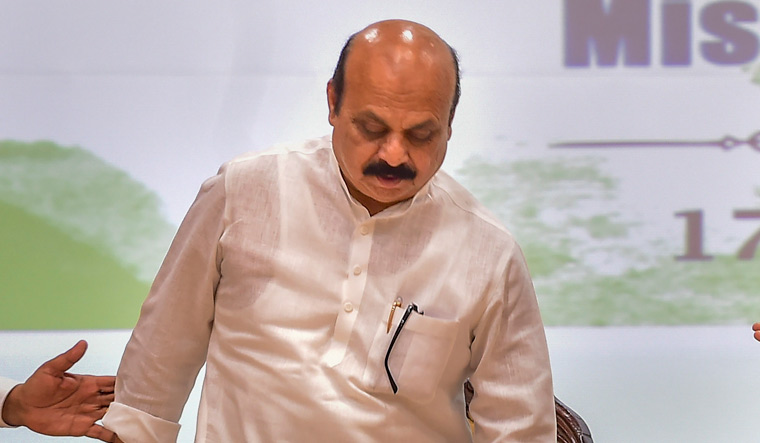The Karnataka cabinet, on Thursday, approved the anti-conversion bill, paving the way for the law to be implemented through an ordinance.
The Karnataka Protection of Right to Freedom of Religion Bill, 2021, was adopted by the state assembly in December following a voice vote. However, the ruling BJP abstained from tabling the bill in the legislative council for want of majority.
The bill, tabled by Home Minister Araga Jnanendra, was met with stiff opposition from the Congress and the Janata Dal (Secular), while Christian community demanded its withdrawal fearing "misuse".
"The anti-conversion bill will be tabled in the next legislature session, and till then ordinance will be in place," said Jnanendra.
The proposed law makes forced conversion a cognisable and non-bailable offence. It prohibits unlawful conversion by misrepresentation, force, undue influence, coercion, allurement or any fraudulent means. It also bans conversion for marriage, a long pending demand of right-wing activists who allege an increase in ‘love jihad’ cases. Re-conversion into Hinduism has been, however, kept out of its ambit as the BJP contends it is homecoming of Hindus who have converted to a religion of foreign origin.
While many BJP-ruled states like Uttar Pradesh and Gujarat have enacted laws to curb forced conversion, penal provisions in the Karnataka bill are more stringent. Forced conversion of a person belonging to general category will attract a jail term of three to five years with a penalty of Rs 25,000. The law prescribes severe punishment of imprisonment from three to 10 years and a penalty of Rs 50,000 for those who convert minors, women or people belonging to Scheduled Castes and Scheduled Tribes. 'Mass conversion’, defined as conversion of two or more people, will attract a prison term of three to 10 years and a fine of Rs 1,00,000.
Once the new law comes into force, any person intending to convert will be required to notify the district magistrate a month in advance, failing which he or she will face a jail term of six months to three years. The person who conducts the conversion ceremony, too, should give a month's notice, failing which he will be liable for a jail term of one to five years.
The district magistrate has to conduct a police inquiry to find out the real purpose of the conversion. A declaration would then be put up on the notice board to check whether there are any objections. If there are objections, the district magistrate can order an inquiry through the revenue or social welfare department to check the “genuine intention, purpose and cause” of the proposed conversion.
Once the conversion is cleared by the authorities, the converted person has to send another declaration and a copy of his or her identity card to the district magistrate within 30 days of conversion. This declaration will again be put up at the district magistrate’s office and people can send in their objections. The converted person also has to appear before the district magistrate.





